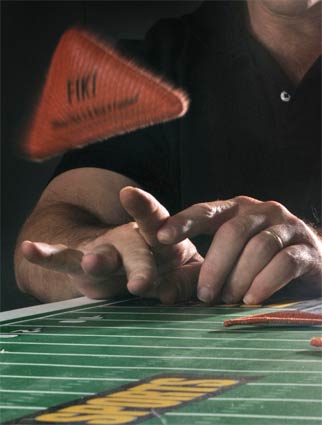
Mind Petals: Entrepreneurship offers countless benefits for the business-minded, goal-oriented, and independent thinkers among us, and today’s increases in entrepreneurial endeavors are only further propagated with the internet.
Still, many business savvy troopers insist on realizing their dreams solo. Here are just five benefits of being a solopreneur:
1)You’re the boss of all! – Every ‘department’ of your business is fueled by your own plans, strategies, and objectives.
2)You don’t need permission to change direction. – Effective decision making is a necessary skill for the business to succeed in the long run, and the solopreneur makes every effort to fine-tune their skills and use them to their advantage.
3)You can accelerate your learning at your own pace. – You have the freedom to take classes, learn about all aspects of business management, and pick up new skills along the way.
4)You get to wear multiple hats.– This often means tackling the learning curve at a higher-than-average rate, but the rewards include the freedom to explore every single aspect of your business—and take full control of its direction.
5)Your success lies solely in your hands. – Whether your business turns out to be a smashing success or a morbid failure, its destiny is truly in your hands.
5 Key Benefits of Being a Solopreneur [Mind Petals]
Category: Entrepreneurs
Dream Big Entrepreneurs

Business Opportunities And Ideas: Barclays Local Business, who compiled the figures, suggests that 44 per cent of today’s business leaders were the dreamers of yesterday.
Commenting on the figures, John Davis, marketing director for Barclays Local Business says: “This survey highlights what many bosses have probably suspected for a long time – that for some employees, their current job is the last thing on their mind when they are at work.
“For budding entrepreneurs, the routine of their job can spark dreams of going onto bigger and better things.”
However, it was not just the workplace where potential entrepreneurs could think about their future. Around eight per cent mull over a potential new venture while on holiday and a further six per cent think about being their own boss between pints in the pub.
Dreamer Today. Entrepreneur Tomorrow? [Business Opportunities And Ideas]
Entrepreneur Profile: Jonathan Hall

NYTimes.com: Remember when white earbuds had status? Jonathan Hall does. But these days, as he and his fellow rail commuters in the tristate area know, the iPod’s once-cutting-edge headphones confer as much distinction as a gray-flannel suit. A couple of years ago, Hall and his wife, Kate, decided that there must be a way to capitalize on this shift. IPod add-ons, including cases and “skins,” had become big business by then — but those items decorated only the main device, which was usually stuffed in a pocket, out of sight. Today, the Halls, who are both 29, have sold tens of thousands of pairs of flexible rubber charms called Emotibuds, which clip onto earbuds, almost like earrings. Each pair (they sell for $12 for a set of three pairs) features a blocky little face that incorporates an emoticon into a cute cartoon visage. There are a variety of faces, each set against a bright color and corresponding with a mood, like “starry-eyed” or “frisky.” Recently, Emotibuds were part of the online design store FredFlare.com’s Next Big Thing contest, and while they didn’t win, the store has had to reorder them at least four times to meet demand.
Earphone Identity [NYTimes.com]

LATimes.com: Richard Crasnick rode in three championship parades with the Los Angeles Lakers, wrote speeches for a basketball legend named Magic and toured Europe with Olympic gold medalists. But the biggest sporting event of his life is playing out in a drab warehouse in Carson, using a thin triangle of leather less than half the size of a credit card.
Crasnick is president of FIKI Sports, which stands for “Flick It and Kick It,” a two-person business that includes his lifetime pal, Craig Matthews. They are betting on a sport that couldn’t be more low tech in an era of sophisticated game consoles that contain more technology than a supercomputer did 10 years ago.
Paper football is played by two people sitting across a table or desk. The “ball” usually is a sheet of notebook paper folded into a flat triangle. Touchdowns are scored by flicking the triangle until it hangs over the edge of the table without falling off. Points also are awarded for “kicking” the ball with your finger through your opponent’s goal posts — formed by his or her index fingers and thumbs.
Crasnick’s version, projected to bring in $1.5 million in revenue this year, is the result of a shared daydream with his brother, Michael, 16 years ago. They took a paper football, wrote the then-Los Angeles Raiders team logo on it and slipped it into a small plastic bag to mimic packaging.
After a long drive, tabletop football scores big [LATimes.com]
What Drives You

Entrepreneur: It’s fascinating to hear other people’s success stories. One of the most interesting parts is learning how successful entrepreneurs got their start and how they overcame challenges and adversity. Did an idea flash in their minds like a lightning bolt? Or was it something that percolated over the years? How did timing play into their launch? Did experience or desperation drive their plan forward?
When I researched my new book, Secrets of Millionaire Moms, I asked 17 highly successful business owners for the personal inspiration and catalyst that moved them to take action. For each woman, it was different. Some were motivated by years of experience and the seed money that enabled it to happen; others launched out of a financial or emotional need.
The common ground all these entrepreneurs shared was financial success and the gratification of creating something larger than themselves. Here are a few excerpts of their experiences:
Rachel Ashwell, founder of Shabby Chic
Ashwell left school at age 16. She separated from her husband in her mid-twenties–with two babies under the age of 2 to support. These circumstances drove Ashwell to take a chance and start a retail business–Shabby Chic. With her babies by her side, she scouted flea markets for items she could refinish. Her pieces became an instant hit in her California store. The rest is history. Her company has since expanded to include a national line of slipcover furniture, bedding, home accessories, a TV series, design books and a line of home furnishings called Simply Shabby Chic sold exclusively through Target stores.
What Inspires People to Startup? [Entrepreneur]